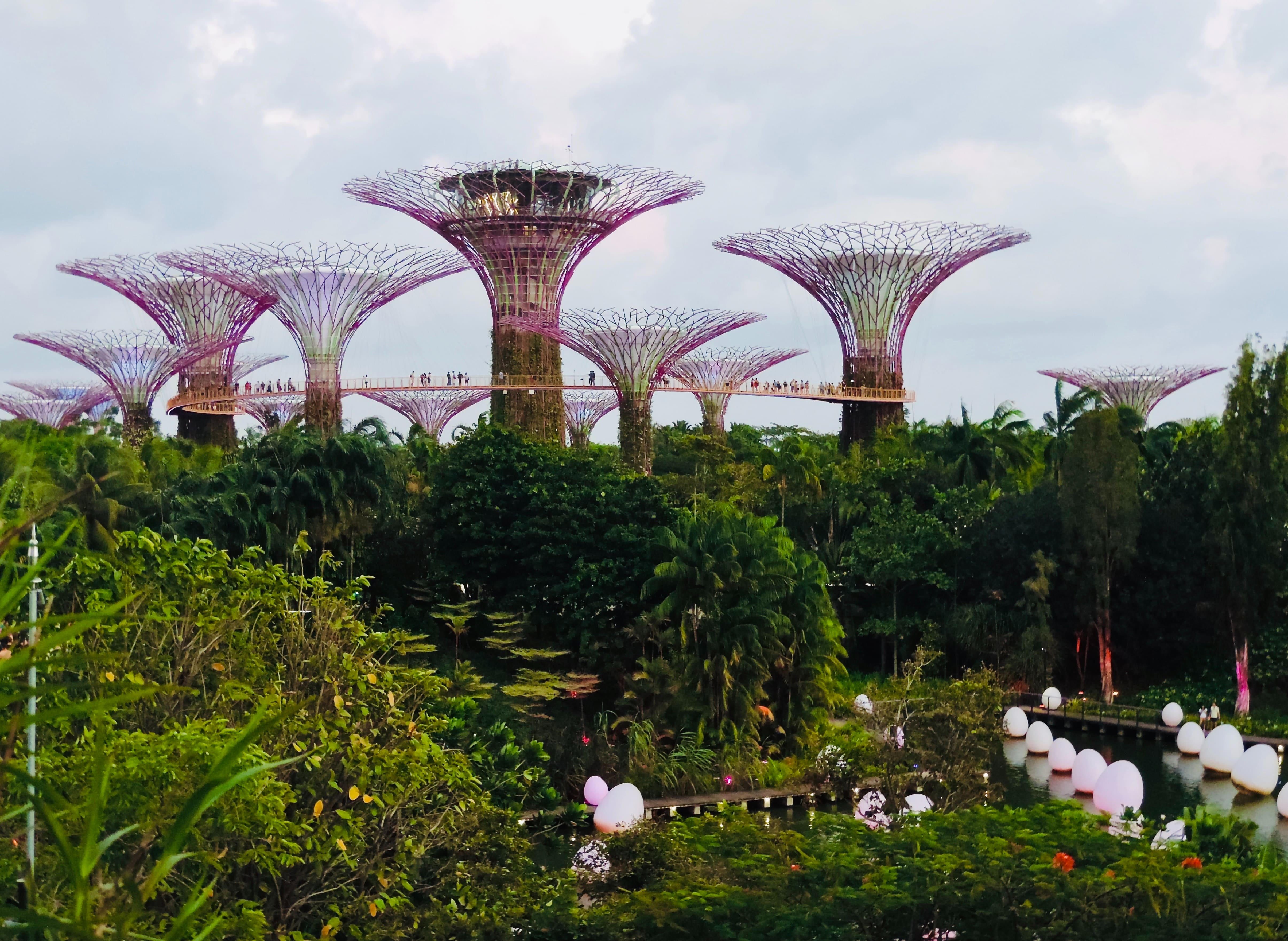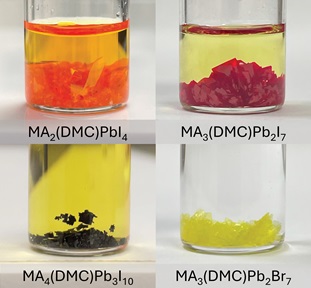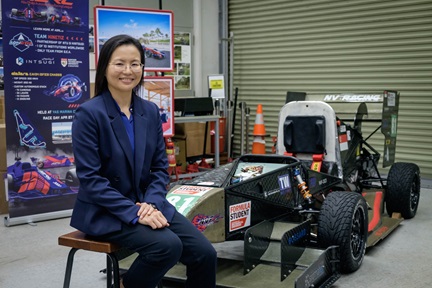Towards a sustainable tomorrow
NTU’s plan for a more sustainable future is a concerted effort that spans all aspects of the University, with its schools and research centres leading the charge.

Climate change has started to affect nature and lives across the world on immense scales, according to the latest report by the Intergovernmental Panel on Climate Change. The irreversible effects of climate change have disrupted basic human needs such as food production and access to clean water, forcing an estimated 3.5 billion people to live under the physical and mental threat of climate vulnerability. Confronted by these facts, it is clear that the only future is a sustainable one.
For resource-scarce Singapore, operating sustainably has always been a part of its roadmap to survival –with sustainability research proving to be the key to further progress. Likewise, sustainability is a key part of NTU’s mission to improve global wellbeing. Recognising that the effort is a complex one involving all sectors, NTU has established various world-class research institutes dedicated to building sustainable societies.
Having broached the waters of sustainability research decades ago, NTU’s firm conviction in the importance of sustainable living culminated in the launch of its Sustainability Manifesto in October 2021. The 15-year plan brings together all members of the NTU community and its multiple partners to fully commit to building a sustainable tomorrow.
Around the same time, NTU also leveraged the capital markets by issuing a publicly-offered sustainability-linked bond, the first ever to be offered by a university. Proceeds from the bond are expected to be applied to support NTU’s corporate and sustainability goals and activities aligned with the Sustainability Manifesto.
Further bringing NTU’s sustainability vision to life is the newly established Sustainability Office, which coordinates and drives the University’s efforts in the field through integrated research, education, community engagement and its Smart Campus initiatives.
“Sustainability is one of humanity’s grand challenges of our time, impacting all life and demanding ambitious solutions,” says Prof Madhavi Srinivasan, Executive Director of NTU’s Sustainability Office.
Creating sustainable societies
A truly sustainable society requires meeting several sustainable development goals such as access to clean water, affordable clean energy and effective waste management. At NTU, meeting these goals has long been a focus of its schools and research centres.
For example, early research at the School of Civil and Environmental Engineering laid the foundation for environment and water research at the Nanyang Environment & Water Research Institute (NEWRI) and renewable energy research at the Energy Research Institute @ NTU (ERI@N).
“research-engineering-deployment” philosophy, NEWRI researchers create technologies with strong commercialisation potential in these domains, while their expertise in waste reduction and resource recovery contributes to the creation of a circular economy that maximises the use of resources.
In line with Singapore’s vision to build a more liveable future, ERI@N has made great strides as an innovation leader in the energy sector over the past decade. To sustainably satisfy the world’s appetite for energy, the institute synergises energy research across the University and focuses on translational research to deploy innovative energy solutions and outcomes. Its two flagship programmes, EcoCampus and Renewable Energy Integration Demonstrator Singapore, as well as extensive translational research and development in the areas of systems engineering, urban solutions and electrical grid resilience, support Singapore’s capabilities in clean energy and sustainability.
Meanwhile, there is the modern problem of electronic waste, otherwise known as e-waste. The Singapore-CEA Alliance for Research in Circular Economy (SCARCE), a joint research and development centre of NTU and the French Alternative Energies and Atomic Energy Commission (CEA), seeks to discover novel methods for recycling and reusing e-waste.
Scientists at SCARCE have developed energy-efficient green technologies to sort, recover, repurpose and reuse valuable elements and plastics from various types of e-waste, such as printed circuit boards, batteries and solar panels.
Environmental issues such as climate change have also brought new challenges in recent decades. With more frequent episodes of intense rainfall and rising sea levels leading to extreme weather hazards, it is increasingly critical to understand and mitigate their impact. Over at the Earth Observatory of Singapore at the NTU campus, teams of investigators work to understand and predict the risk of climate change-related disasters as well as other hazards such as tsunamis, earthquakes and volcanic eruptions.
Such environmental challenges, coupled with the growing global demand for food as well as outbreaks of plant and animal diseases, could affect food supply – a potential problem NTU is addressing as a leader in food technology innovations. The University hosts a number of national food initiatives, such as the Future Ready Food Safety Hub that advances food safety science and develops innovations to ensure that urban farm produce and alternative foods are safe for consumption.
A firm believer in the potential of collaborations to address complex problems, NTU also co-funds and hosts the Singapore Centre for Environmental Life Sciences Engineering (SCELSE) in partnership with the National University of Singapore. Designed to meet the emerging challenges of maintaining a sustainable environment, SCELSE leverages cutting-edge expertise and technologies in natural sciences and engineering to understand, harness and control microbial communities, otherwise known as biofilms, in environmental, industrial, urban and public health settings.
Walking the walk
University reach its sustainability goals over the next 15 years.
In addition, the University will test and apply its sustainability research advances on its Smart Campus, a living testbed for future technologies. The Smart Campus aims to demonstrate how innovative digital and tech-enabled solutions can support better learning and living experiences, new discoveries and resource sustainability.
To further solidify its position as a global leader in sustainability by starting on its own shores, NTU is committed to “walk the walk” in its pledge to reach carbon neutrality and halve carbon emissions on campus by 2035.
Ultimately, Prof Madhavi is optimistic that NTU’s efforts will have far-reaching impact beyond Singapore. “We hope that by breaking new ground in sustainability research and lighting the way to sustainable living, we will offer technological innovations and solutions to benefit societies in Singapore and around the world,” she concludes.
The article appeared first in NTU's research & innovation magazine Pushing Frontiers (issue #20, June 2022).




.tmb-listing.jpg?Culture=en&sfvrsn=29c7e020_1)
.tmb-listing.jpg?Culture=en&sfvrsn=55153609_1)

